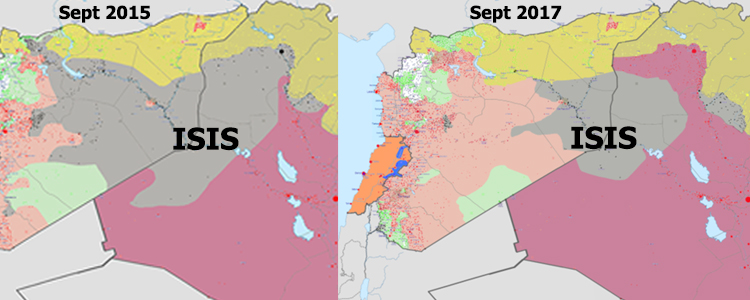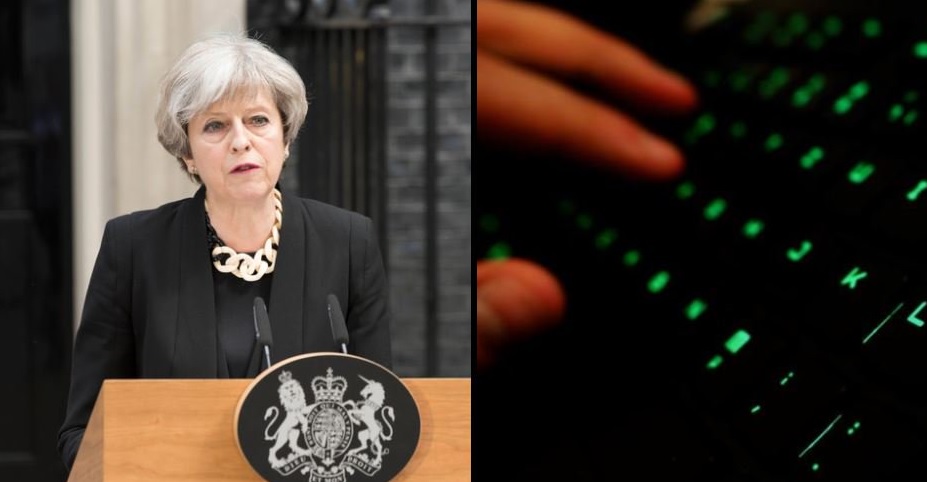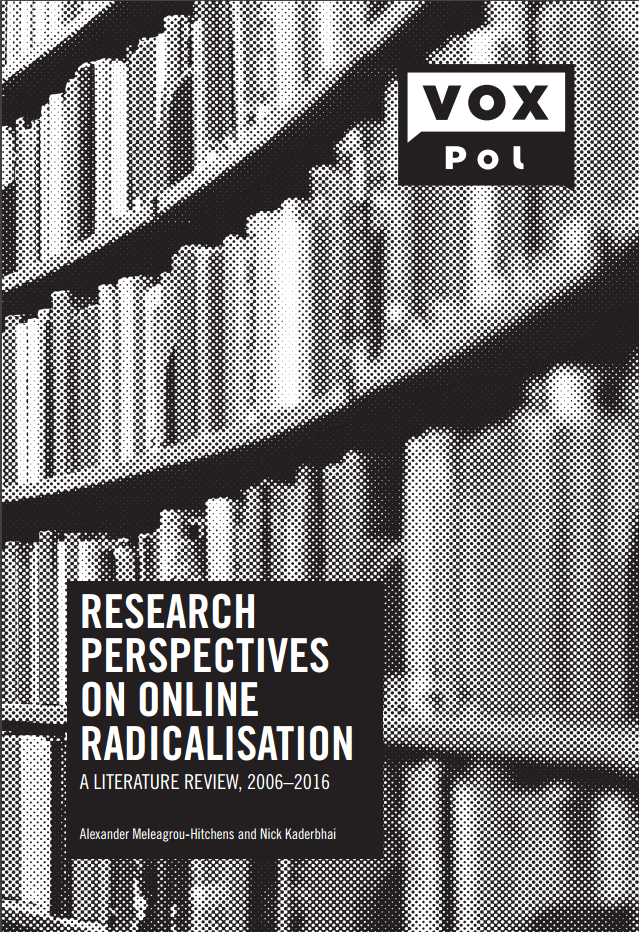Online radicalisation
Blog
ISIS: From Connective Action to Transnational Insurgency?
September 6, 2017Since late 2016, researchers came to acknowledge both ISIS’ territorial decline and much reduced visibility on mainstream social media networks. They note that its online community of supporters have migrated to encrypted communication channels and that its territory in the Levant has shrunk considerably, which—according to a recent ICSR estimate—impacted on the organisation’s financial resources. ...
Blog
Macedonia’s Jailed Jihadists Try to Recruit Online
July 26, 2017By Haris Fazliu While researching Bringing Down the Digital Caliphate – Breaking the ISIS Brand (under review), for the International Center for The Study of Violent Extremism, ICSVE, I discovered that convicted terrorists in Macedonia linked to ISIS continue to share propaganda online. Jihadists currently serving sentences in Macedonian prisons freely use smartphones to watch videos, ...
News
VOX-Pol participation in Terrorism & Social Media Conference
July 5, 2017The Terrorism and Social Media Conference (TASM) was held on 27 to 28 June in Swansea University. The event kicked off with a keynote speech by Prof. Bruce Hoffman from Georgetown University entitled “The Threat From ISIS and al Qaeda: Contextualising the Role of Social Media” in which he emphasised that social media has played a serious ...
Blog
The UK’s plan to deny terrorists ‘safe spaces’ online would make us all less safe in the long run
June 21, 2017By Molly Land In the wake of the recent attacks in Manchester and London, British Prime Minister Theresa May has called on social media companies to eliminate “safe spaces” online for extremist ideology. Despite losing the majority in the recent election, she is moving forward with plans to regulate online communications, including in cooperation with ...
Blog
Telegram: The Mighty Application That ISIS Loves – PART II
June 14, 2017This post is Part 2 of 2. Click here for Part 1 By Ahmet S. Yayla & Anne Speckhard Reaching out on to ISIS members via Telegram channels is a significant challenge for beginners. First of all, as the Telegram application is installed, the application copies all the contact numbers on one’s cell phone and connects the ...
Blog
Telegram: The Mighty Application that ISIS Loves – Part I
June 7, 2017By Ahmet S. Yayla & Anne Speckhard ISIS has been the most successful terrorist organization in history using social media and the Internet for distributing its propaganda, dissemination of its news and more importantly to communicate. There is no doubt that the frequency and quality of ISIS posts on the Internet, including their videos, memes ...
Blog
The Role of the Internet in the Jihadist Mobilisation of Women in Spain
May 31, 2017The mobilisation of women for the jihadist cause emerged in Spain within the framework of the current mobilisation in Western Europe linked to the conflict in Syria and Iraq and the appearance of the so called Islamic State (IS) as a new vanguard of global terrorism. The explicit call from Abu Bakr al-Baghdadi to women ...
News
New VOX-Pol Report: Research Perspectives on Online Radicalisation
May 3, 2017Our latest report is launched today, May 03, 2017, available now in the VOX-Pol Online Library VOX-Pol has released its latest report in the VOX-Pol publication series, titled ‘Research Perspectives on Online Radicalisation: A Literature Review, 2006—2016’. Other reports in the series have included: Check the Web: Assessing the Ethics and Politics of Policing the ...
Blog
Despite short-term increases in arrests, counter-extremism powers need to do more to tackle the far-right
April 26, 2017By Bharath Ganesh In early March, the Home Office published new counter-terrorism statistics that indicated a significant increase in the arrest of ‘white’ extremists. Tabloids in the UK, including The Daily Mail, ran triumphant headlines claiming a crackdown on far-right extremism. Unfortunately, the data released by the Home Office does not support any such assertion. The ...
Blog
Terrorist Use of the Internet by the Numbers: Part I – Quantifying Behaviours, Patterns, and Processes Using Open Sources
March 22, 2017This post is Part 1 of 3. Background Previous research on terrorist use of the Internet generally discusses the opportunities offered by the Internet to terrorist groups. Such accounts implicitly view the interaction between the Internet and the user as uni-directional (i.e. exposure to Internet content may cause behaviour change). This lacks an acknowledgement that not ...









